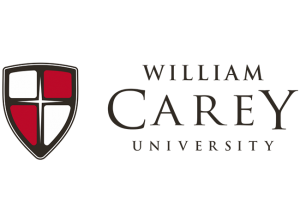 A master’s in secondary education online is designed for those with a bachelor’s degree who want to teach students that subject. For example, perhaps you have a bachelor of science in chemistry and would like to teach this subject to junior high or high school students. With one of the cheapest online master’s in education programs, you can channel your expertise into a rewarding teaching career.
A master’s in secondary education online is designed for those with a bachelor’s degree who want to teach students that subject. For example, perhaps you have a bachelor of science in chemistry and would like to teach this subject to junior high or high school students. With one of the cheapest online master’s in education programs, you can channel your expertise into a rewarding teaching career.
We have identified 94 online teaching programs from 68 schools that will prepare you to become a secondary teacher. You may find that the total master’s in education cost is surprisingly affordable. Ranging in price from less than $9,000 to over $47,000, there is a program to fit almost any budget.
ARTICLE NAVIGATION: Rankings Table | Career Guide
Average Cost (In-state): ~$17,900
Least Expensive In-state: Western Carolina University ~$8,840
Least Expensive Out-of-state: Campbellsville University ~$9,750
Most Expensive: Drexel University ~$47,115
This is the most reliable ranking of online education programs you can find. We use a simple, no-nonsense system to create a truly reliable ranking of cost that includes fees. To help you find the cheapest online master’s in education for your needs, everything above the dividing line is priced below the average cost.
The Cheapest Master’s in Secondary Education Online
| Rank | School / Degree | State | Price | Note |
|---|---|---|---|---|
1 | Western Carolina University | (NC) | $8,840.00 $26,185.00 $8,840.00 | In-State Out-of-State Military |
2 |  Campbellsville University | (KY) | $9,750.00 | All Students |
3 | Morningside College | (IA) | $10,540.00 | All Students |
4 | Georgia College & State University | (GA) | $10,628.00 | All Students |
5 | Fort Hays State University | (KS) | $10,748.00 | All Students |
6 | University of the Cumberlands | (KY) | $10,795.00 $9,475.00 | In-State/Out-of-State Military |
7 | Georgia Southern University | (GA) | $10,803.00 | All Students |
8 | Southeast Missouri State University | (MO) | $11,595.00 | All Students |
9 | Georgia Southern University | (GA) | $11,634.00 | All Students |
10 | Eastern New Mexico University | (NM) | $11,635.00 $15,181.00 | In-State Out-of-State |
11 | Eastern Kentucky University | (KY) | $11,970.00 | All Students |
12 | University of North Alabama | (AL) | $12,000.00 | All Students |
13 | University of North Georgia | (GA) | $12,117.00 | All Students |
14 | Southern Arkansas University | (AR) | $12,810.00 $18,030.00 | In-State Out-of-State |
15 | Georgia Southern University | (GA) | $12,888.00 | All Students |
16 | University of Arkansas at Monticello | (AR) | $12,960.00 $20,310.00 | In-State Out-of-State |
17 | Mississippi University for Women | (MS) | $13,110.00 | All Students |
18 | University of Central Missouri | (MO) | $13,190.00 | All Students |
19 | The University of Alabama | (AL) | $13,500.00 | All Students |
20 | Pittsburg State University | (KS) | $13,530.00 | All Students |
21 | California State University-Fullerton | (CA) | $13,586.00 $25,862.00 | In-State Out-of-State |
22 |  University of West Florida | (FL) | $13,745.00 | All Students |
23 | South Dakota State University | (SD) | $14,114.00 | All Students |
24 | University of South Dakota | (SD) | $14,290.00 | All Students |
25 | Ball State University | (IN) | $14,330.00 $20,870.00 | In-State Out-of-State |
26 | Delta State University | (MS) | $14,354.00 | All Students |
27 | Pittsburg State University | (KS) | $14,760.00 | All Students |
28 |  University of West Alabama | (AL) | $14,826.00 | All Students |
29 |  William Carey University | (MS) | $14,850.00 | All Students |
30 | Northern Kentucky University | (KY) | $14,976.00 | All Students |
31 | University of Nebraska at Omaha | (NE) | $15,088.00 $18,904.00 | In-State Out-of-State |
32 | Texas A & M University-Corpus Christi | (TX) | $15,557.00 $33,189.00 | In-State Out-of-State |
33 | Northwestern State University of Louisiana | (LA) | $15,675.00 | All Students |
34 | Kansas State University | (KS) | $15,829.00 | All Students |
35 | Liberty University | (VA) | $16,036.00 $10,000.00 | In-State/Out-of-State Military |
36 | University of Saint Francis-Fort Wayne | (IN) | $16,050.00 | All Students |
37 | Mississippi State University | (MS) | $16,170.00 | All Students |
38 | Idaho State University | (ID) | $16,214.00 | All Students |
39 | Black Hills State University | (SD) | $16,466.00 | All Students |
40 | Texas A & M University - Commerce | (TX) | $16,476.00 $31,164.00 | In-State Out-of-State |
41 | Northwestern State University of Louisiana | (LA) | $17,100.00 | All Students |
41 | Troy University | (AL) | $17,100.00 | All Students |
43 | Tennessee State University | (TN) | $17,589.00 $25,146.00 | In-State Out-of-State |
44 | University of Idaho | (ID) | $17,670.00 | All Students |
45 | Mississippi State University | (MS) | $17,787.00 | All Students |
| School / Degree | State | Price | Note | |
|---|---|---|---|---|
University of Louisiana at Monroe | (LA) | $18,000.00 | All Students | |
Asbury University | (KY) | $18,050.00 | All Students | |
Old Dominion University | (VA) | $18,074.00 $18,794.00 | In-State Out-of-State | |
Northern Arizona University | (AZ) | $18,075.00 | All Students | |
McDaniel College | (MD) | $18,133.00 | All Students | |
Northwest Nazarene University | (ID) | $18,295.00 | All Students | |
Wilkes University | (PA) | $18,890.00 | All Students | |
University of Memphis | (TN) | $19,680.00 | All Students | |
University of Mary | (ND) | $19,798.00 | All Students | |
Mercer University | (GA) | $19,890.00 | All Students | |
DeSales University | (PA) | $20,820.00 | All Students | |
Lindenwood University | (MO) | $21,210.00 | All Students | |
Creighton University | (NE) | $21,436.00 | All Students | |
Prescott College | (AZ) | $21,528.00 | All Students | |
Carlow University | (PA) | $21,630.00 | All Students | |
Slippery Rock University of Pennsylvania | (PA) | $22,370.00 $24,955.00 | In-State Out-of-State | |
Eastern Kentucky University | (KY) | $22,660.00 | All Students | |
University of Georgia | (GA) | $23,232.00 | All Students | |
Regis University | (CO) | $24,074.00 | All Students | |
St. Bonaventure University | (NY) | $24,550.00 | All Students | |
Eastern University | (PA) | $24,984.00 | All Students | |
Saint Joseph's University | (PA) | $25,240.00 | All Students | |
Point Park University | (PA) | $25,494.00 | All Students | |
New Jersey City University | (NJ) | $28,825.00 | All Students | |
Messiah University | (PA) | $33,810.00 | All Students | |
Hope International University | (CA) | $34,575.00 | All Students | |
Mercy College | (NY) | $35,796.00 | All Students | |
New York Institute of Technology | (NY) | $44,100.00 | All Students | |
Drexel University | (PA) | $47,115.00 $44,010.00 | In-State/Out-of-State Military |
Program Note: To qualify for a ranking, the master’s in secondary education online must be regionally accredited. Additional programmatic accreditation is noted in the rank table. Degrees labeled with superscript 14 indicate that options for this program have changed since publication.
CAEP Council for the Accreditation of Educator Preparation
Rankings Note: These online college rankings are based on a GetEducated Winter/Spring 2023 review of regionally accredited master’s in secondary education online programs. Total cost includes full-time tuition and fees and was valid at the time of collection and specific to the online learning program. School profiles for the online master’s degree in secondary education in our directory may reflect a slightly different cost based on different editorial update schedules. The published cost is an estimated sticker price for the entire online master’s degree in secondary education including fees. Actual costs may vary by student. Factors such as transfer credits, prerequisite courses, professional licensing and financial aid availability will affect final cost.
Editorial Note: Online schools do NOT pay to be included in any GetEducated online degree ranking. These rankings are editorially independent, open to any regionally accredited or candidate college that offers a master’s in secondary education online that is available at least 80 percent through online learning and that is open to enrollment by the public. If your online college is regionally accredited and not currently reviewed by GetEducated, please contact us for inclusion.
These rankings of the cheapest online master’s in education programs may NOT be re-posted online or reprinted in any format without a license from GetEducated ®. Consumer finance bloggers and writers can contact our editors for a free custom article on the cheapest online master’s in education programs for use on your website. Our mission: Help consumers GetEducated ® about the best online colleges for cost and credibility.
Why Should I Get One of the Cheapest Online Masters in Education?
These programs bring many benefits, including a stable career, rewarding work, and the chance to use your bachelor’s degree:
- Rewarding, important profession: Teachers are important. They can be some of the most respected members of the community and their work, while challenging, is endlessly rewarding.
- Needed in all corners of the nation: Where would you like to live? A big city? In the suburbs? A rural community? Teachers work in all corners of the country, so you can find a job nearly anywhere.
- Put your bachelor’s degree to work: If you have a bachelor’s degree but aren’t using your education, at least not directly, these master’s programs allow you to put this knowledge and experience to good use.
What is the Price for One of the Cheapest Online Master’s in Education?
These programs can be affordable or expensive, so you need to research the costs and find the right program for your budget.
The average master’s in education cost for these programs is $17,900. Assuming you take a two-year, four-semester plan, the average per-year cost is $8,950, while the average per-semester price is $4,475.
You can find plenty of programs priced well below this average. The cheapest online master’s in education is the Master of Arts in Education / Middle Grades Education from Western Carolina University in North Carolina. For in-state students, this program only costs $8,840. However, out-of-state students are required to pay $26,185 for this degree.
For all students, the cheapest master’s in education online is from Campbellsville University in Kentucky. Its Master of Arts in Teaching Middle Grades, focusing on either grades 5-9 or 8-12, only costs $9,750. Best of all, this price for the cheapest online master’s in education is available to all students, not just Kentucky residents.
The most expensive degree in this list is the Master of Science in Teaching, Learning and Curriculum / Teacher Certification (Secondary Education or Middle-Level Education) from Drexel University. This program has a total cost of $47,115.
An online master’s can be affordable, but you need to research the program and find the right degree for your needs. Here are some more details about the top three cheapest online master’s in education degrees:
#1. Western Carolina University – Master of Arts in Education / Middle Grades Education
North Carolina residents have access to the cheapest online master’s in education for middle grades teachers. This program from Western Carolina University has a total in-state tuition of $8,840, putting it at the #1 spot on our list. This affordable rate also extends to students who qualify for military tuition. Other out-of-state students can expect to pay $26,185 in all for the program.
Participants will learn how to best serve the needs of students in grades six through nine. Coursework emphasizes the development of high-level teaching skills, covering topics such as research skills, advanced content area knowledge, and child and educational psychology. Students will gain an understanding of ways to develop curriculum and improve programs in their schools. Concentrations are available in Language Arts/Literacy and STEM.
#2. Campbellsville University – Master of Arts in Teaching Middle Grades (5-9) & Master of Arts in Teaching High School Education (8-12)
Campbellsville University in Kentucky offers the same low rate to all online students, regardless of residency. At $9,750, this makes it the cheapest online master’s in education for out-of-state students, and second cheapest for in-state students. With two options available, educators can choose the degree that most closely matches their preferred grade levels.
The MA in Teaching Middle Grades covers grades five through nine. Students will study foundational teaching, research, and management skills in this program designed for those without a teaching background. In addition to educational theories and strategies, courses examine the cognitive, physical, and social-emotional aspects of growth in adolescents. Four tracks are available: English, science, social studies, or mathematics.
The MA in Teaching High School Education is designed to focus on grades eight through twelve. The program is designed for aspiring educators with a bachelor’s degree in a relevant subject field. The program equips students with effective teaching methods and insights into current educational trends. The curriculum also covers management, research methods, and the use of instructional technology.
#3. Morningside College – Master of Arts in Teaching / Middle Level Student
Morningside College in Iowa provides a Master of Arts in Teaching with multiple concentration areas, including Middle Level Student. This program costs just $10,540 for all online students. Program participants will be prepared for a career teaching at the middle school level.
Core courses explore topics including literacy, adolescent growth and development, and middle school curriculum and methods. Students will also complete a field experience at their current school or a school local to them. Participants can choose from endorsements in math, social studies, language arts, or science.
Secondary Education: Online Master’s Degree Program Types
These programs allow you to use your current bachelor’s degree, but they come in many forms. While they all prepare you for a career in teaching, they have different structures and aspects.
But before describing these degrees, let’s make sure we understand an important term…
What is Secondary Education?
These online programs focus on secondary education, which is not a term used by most people. Outside of education professionals, few people use this term, let alone know what it means.
Secondary education is a term that encompasses middle school and high school. Essentially, everything after elementary school, which usually ends around fifth or sixth grade, is secondary education. In the past, “primary” school was used instead of elementary school, while “secondary” was the term for “junior high” or “high school.” The term has faded from common use, but is still used in the education sector. (This is also why “postsecondary” describes college education.)
These programs, therefore, teach you to become junior high or high school teachers. While you may be able to become an elementary teacher after graduation, your knowledge and skills will be directly related to 6th through 12th grade.
How Long to Complete an Online Master’s in Secondary Education?
These programs usually require two years of academic study. However, some programs offer graduation in a single calendar year. In most cases, this means a heavy course load through three semesters: summer, fall, and spring.
Master of Arts, Science, or Education?
Aspiring educators have their choice of several types of degrees. They may seem interchangeable, but there are important differences between a master of arts in education, a master of science in education, and a master of education. There is plenty of overlap, but you should understand the differences and identify the type that works best for your future.
A master of arts is often the most theoretical and wide-ranging. These programs typically focus on the theories and philosophic foundations of education.
A master of science, as the name implies, is more scientific. Students in these programs will be exposed to more research-backed theories, focusing on provable methods and strategies for educating students.
A master of education is more focused on systems of education. It looks at education administration, policy, management, and structure. It teaches students how schools and school districts operate. This is often the preferred master’s degree for aspiring school principals, administrators, and superintendents.
Courses During an Online Master’s in Secondary Education
Georgia College & State University – Master of Arts in Teaching / Secondary Education
During this program, you will learn to teach 6th through 12th grade, focusing on subjects like biology, business education, English, history, and physics. Requiring at least 36 hours of coursework, the program includes 10 required courses (three hours each) and a content area section, which has an assessment and pedagogy course.
The required courses cover topics such as education development, strategies for instruction, education technology, and course planning. Classes include “Planning for Instruction,” “Learner Development,” and “The Teaching of Reading.”
Black Hills State University – Master of Science in Secondary Education
This program is designed for completion in one or two years. Essentially, students can select the two-year track, which resembles a typical master’s program, or the one-year track, which starts with nine semester hours during the summer semester, 16 hours during the fall, and 10 hours in the spring. At most, the two-year track requires 10 semester hours in the final spring semester, while most semesters require five to eight credit hours.
Once complete, graduates hold master’s degrees and become eligible for teaching certification. (If they were not eligible already.) Classes include “Plan, Manage and Assess the Diverse 7-12 Classroom,” “Curriculum and Instruction: Special Content Methods,” and “Middle Level Methods of Teaching.”
Point Park University – Master of Education in Secondary Education
Requiring 42 credit hours, this is one of the largest master’s in secondary education online you can find. This program is ideal for people with a bachelor’s degree who want to become middle or high school teachers in their undergrad subject. For example, if you have a bachelor of science in chemistry, you can complete this master’s degree to become a qualified and licensed chemistry teacher.
Courses in this program focus mostly on teaching and less on the subject area. Students complete classes on human learning, instructional methods for secondary teachers, assessment strategies, and technology in the classroom.
Accreditation for Online Master’s in Education
Accreditation, which is a quality-review system for schools and programs, serves two essential purposes.
First, it helps students find reliable, high-quality educations and degrees that will be respected in the job market.
Second, it forces schools and education departments to maintain a high standard. Because schools know they are being reviewed and scrutinized, they are more likely to maintain a high level of performance. In a way, accreditation encourages schools to boost their ongoing efforts; it helps them avoid complacency.
Accreditation comes in two major forms: institutional and programmatic. Institutional accreditation covers the entire college or university. Granted by regional groups, institutional accreditation tells students that a school, as a whole, has met a high level of academic excellence.
Programmatic accreditation only covers the degree or program. This type is granted by subject-specific organizations; for example, an athletic training degree may have accreditation from the Commission on Accreditation of Athletic Training Education (CAATE).
CAEP
For a master’s in secondary education online, look for programmatic accreditation from the Council for the Accreditation of Educator Preparation (CAEP). This organization, recognized by the U.S. Department of Education and the Council for Higher Education Accreditation, accredits bachelor’s, master’s, and doctorate programs in education.
Numerous master’s programs in this database have CAEP approval, including:
- University of Central Missouri – Master of Arts in Teaching / Middle School Education
- Pittsburg State University – Master of Science in Teaching / Secondary Education
- Campbellsville University – Master of Arts in Teaching Middle Grades (5-9)
- Georgia College & State University – Master of Arts in Teaching / Middle Grades Education
- University of West Florida – Master of Education in Curriculum & Instruction / Secondary Education
- University of Idaho – Master of Education in Curriculum & Instruction / Secondary Teacher Certification
- Troy University – Master of Science in Education / 6-12 Certification
If a degree does not have programmatic accreditation, that’s okay. As long as the school has institutional accreditation from a recognized regional group, it will deliver a high-quality education.
Typical Admission Requirements for an Online Master’s in Education
The process for enrolling in a master’s program is more intense, detailed, and time-consuming than undergrad degrees. While most students with a strong academic background and professional experience will be accepted to the cheapest online master’s in education, applicants should be prepared with numerous documents.
The first requirement is a bachelor’s degree. For these programs, students can have bachelor’s from a wide variety of subjects. History, math, and science are all potential subjects. A bachelor’s in teaching, however, is rare.
These programs also require numerous documents, including letters of recommendation from academic and professional contacts and a statement of purpose. Applicants will also need to meet the school’s GPA requirements, which are often 3.0 or higher.
Licensing and Certification for Education Professionals
After completing one of these degrees, you can qualify for testing and certification to become a middle or high school teacher. All teachers at public schools, and even some in private schools, need a license.
Most states require teachers to pass general teaching certification tests before they can apply for certification. Candidates will need to pass a competency exam and a basic skills exam. You may also need a subject-specific test. For example, if you are going to be a chemistry teacher, the state may require a chemistry-related exam.
Once you have passed any certification requirements, you can apply for a license to teach in the state. This step usually requires you to submit scores from state exams and your teaching program. A background check will likely be required as well.
The teacher certification, however, is only eligible for a few years. Most states require renewal every five years, although some require renewal around three years.
To be eligible for renewal, teachers need to complete a specific number of hours of continuing education and earn Continuing Education Credits, called CEUs. You’ll also need to meet professional development requirements and pay any related fees.
Salary and Career Outlook for Secondary Teachers
High school teachers do not enter this career for the high salaries. It’s more about the important work than a paycheck. That said, there are plenty of chances to earn a strong income.
The median salary for high school teachers (May 2021) is $61,820, while the top 10% earn over $101,310 annually. It’s worth noting, however, that the minimum education for this career is a bachelor’s. With a master’s, you’ll have more education than many other teachers, so there’s a good chance you’ll be at the higher end of the earnings scale.
While you should consider the cost of living, California offers the highest wages to teachers. In this state, the median salary for teachers is $92,960; over $30,000 higher than the national median. New York ($91,290) is second on the list, while Washington ($88,520) is third.
Education, while perhaps not the most lucrative career field, is certainly stable and reliable. Teaching jobs are all across the country, from coast to coast and border to border. Quiet rural communities and bustling cities need teachers. From a graduate’s perspective, this means there are opportunities no matter where you want to live. From the middle of Manhattan to remote Alaska, you can find a teaching position in any city, county, state, and region.
Teaching will not see massive growth, but it is a steady profession. Between 2021 and 2031, the BLS expects the career of high school teachers and middle school teachers to grow by 5%, which is in line with all careers. Teaching careers as a whole will grow by 7%, so there should be options for people with the right training and education.
The Next Step in Your Education
After completing an online master’s degree in secondary education, you’ll be a trained professional who can teach middle and high school students. However, you can continue your education and become one of the most well-informed experts in the field.
A doctorate, which can come as a doctor of philosophy (Ph.D.) in education or a doctorate of education (Ed.D.), will require at least three years of additional study. Some require as much as eight years. Once complete, you can qualify for academic and scientific research positions, consulting work, and advanced education leadership.
Whether you choose to pursue a doctorate or not (most won’t), if you become a teacher you must meet continuing education requirements. The requirements are set by the state, but most require teachers to complete classes, seminars, and tests to renew their licenses.
Put Your Bachelor’s to Work with a Master’s In Secondary Education
Whether you have a bachelor’s degree in biology, history, chemistry, English, mathematics, political science, or virtually any other subject, these master’s programs allow you to leverage this education to pivot your career.
Put your knowledge and passion to work with an online master’s degree in secondary education. Visit GetEducated.com for more resources and information on these programs.



